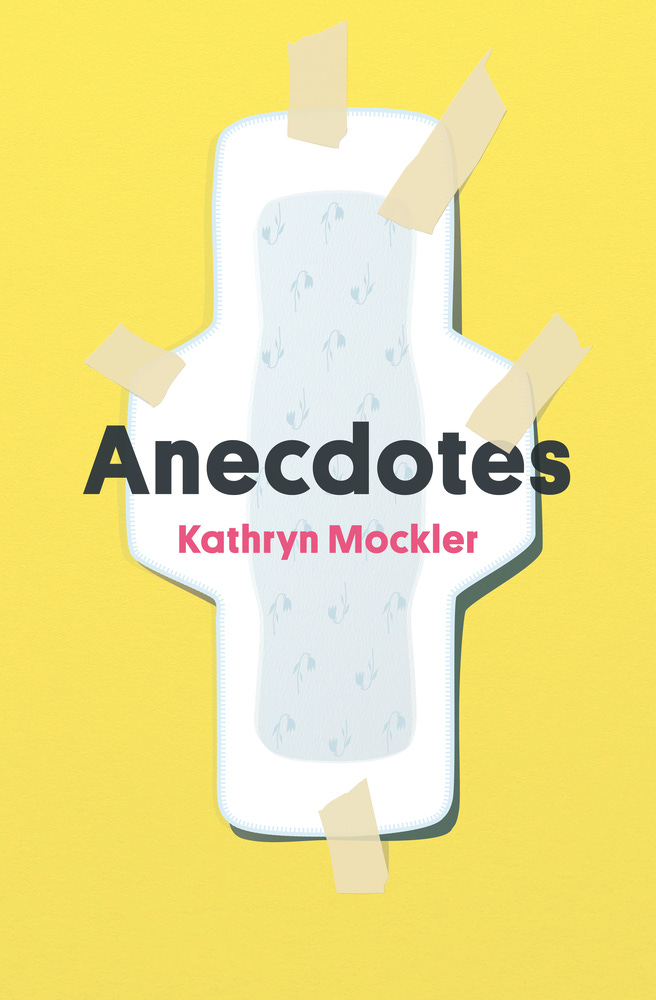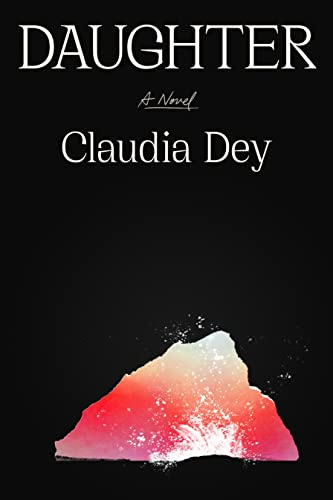Anecdotes by Kathryn Mockler (2023)
Daughter by Claudia Dey (2023)
As I considered how to begin a review of Anecdotes, Kathryn Mockler's new (2023) "instant 'post hope' classic" — more on that quotation in a moment — I took a peak at theglobeandmail.com and caught this headline: "Negotiators at COP28 urged to narrow focus to reach agreement on how to save Earth as clock winds down on climate talks."
How To Save Earth As Clock Winds Down.
Negotiators Urged To.
Narrow Focus On Climate Talks.
To Save Earth.
This may well be a 'post hope' headline, because who expects COP28 to save anything? In such a world, wither literature. How does one write? How does one contextualize day-to-day quirkiness within impending doom?
Kathryn Mockler gives it a go.
I had to Google 'post hope' (it appears in a blurb on the back cover, calling Anecdotes "an instant 'post hope' classic"), but I take it to mean what it says. Hope is so yesterday. Hope is what we used to have, it's what we used to turn to to get over those sad humps, which more and more look like mountains. We're all in Beckett's world now. Self-conscious of doom. How can we carry on? We carry on.
Anecdotes is divided between four sections and contains, by my count 71 named pieces in 265 pages, and that doesn't include the third section, which is something unto itself. Some of the pieces are a half-dozen pages or more, while others area few brief paragraphs. They are short-shorts, if you like that definition. Or we could just follow the title and call them anecdotes.
Each of the four sections could stand alone; together they reinforce common themes. Mockler's vision is tinted with dark humour and stark honesty. This is a book that would not have been out of place in the 1990s; it is grunge inflected, punk infused. It's a book I would be happy to share with my 17-year-old self. Never mind the bullocks.
Note: As the editor of The Danforth Review, literary magazine, I published one of the stories gathered here, The Job Interview: A Murder (2017).
So no surprise, I was pleased to have Anecdotes in my hands and immerse myself in Mockler's work. Yes, it can be bleak, but see the Globe and Mail headline above. Against this darkness, the light shines ever brighter. Mockler bravely looks into the void and reports what she sees. Again, Beckett comes to mind. Be honest. Be brave. Carry on.
Turning to Claudia Dey's novel, Daughter (2023) ... this is a different fish, though no less devastating. On the one hand, the plot of this novel is super simple; on the other, it's too complicated for words.
The simple version is a man, a well-known novelist, has three daughters, two by his first wife, one by his second. At the beginning of the book, he is cheating on his second wife and sharing his secret with his middle daughter. He tells her he is about to confess to his wife, and he does, including sharing that he involved the middle daughter in the conspiracy. All hell breaks loose. The youngest daughter feels betrayed by her half-sister, even as her father is reconciled with her mother. The novel is told largely through the point of view of the middle daughter, a playwright, who has her own creative and romantic struggles and other traumas.
There's more, but let's not give it all away. The story is told in straightforward prose, recounting an almost moment-by-moment unfolding of family dysfunction. He said, she said, she messages, he said, she did. One thing happens, another things happens, action leads to action leads to potential consequence and/or consequence avoided.
It's a narrative in search of a logic, as many family sagas are. It would make, say, an excellent HBO mini-series.
We're starting to get into the more complicated version here, which is really just ... these are people you may not want to spend a lot of time with. The scenario is fucked up. That said, these may be exactly the people you want to follow closely. How could they be so messed up?
Toxic masculinity might be one answer. Massive entitlement and lack of consequences might be another. Is there a difference?
Dey's writing is sharp and her psychological insights penetrating. A novel more frightening than entertaining? It's up to you.
The ending is a sharp stab to the gut. Fabulous.




Thanks so much Michael!!! I'm also looking forward to reading Daughter!!!!